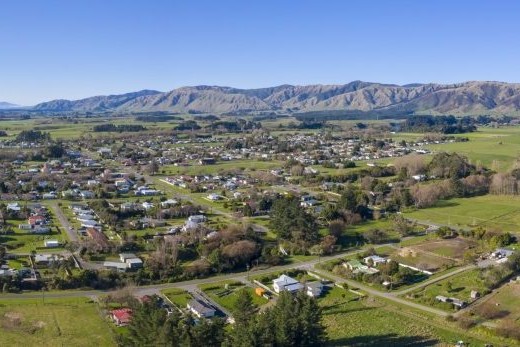Every new year brings a long list of resolutions (ask gym owners) and forecasts from experts about what the year will bring. This piece is one of these forecasts, which when we look back in December, will hopefully be more accurate than my prediction about who will win the 2022 Football World Cup (Germany, of course).
Let me begin with the obvious: Covid-19. Vaccinations, improved medical treatments, face coverings, and behavioural changes will allow us to lift restrictions.
By now, 93% of eligible New Zealanders are double vaccinated and the Government is transitioning to living with the virus rather than trying to eliminate it at every cost. This has major implications for the recovery of NZ’s economy, where service industries contribute about two thirds of GDP.
Getting rid of lockdowns and re-opening the border will be important policy changes. However, the Government is still behind other countries in using rapid antigen tests and building hospital capacity.
What are the big economic topics we will be talking about in 2022? These will be: inflation, interest rates, house prices, labour supply, and bad economic policy decisions.
Recently, inflation has featured prominently in the media. In May 2021 when inflation was still officially at 1.5%, I warned in an opinion article that inflation would soon become an issue (which was disregarded at the time).
Inflation is high because of stronger economic growth than expected, supply chain problems, loose monetary policy, and large fiscal spending. Fiscal spending seems to have stopped increasing further, but supply chain issues might be with us for a while, especially when Omicron leads to many people having to isolate themselves for seven to 10 days.
With high inflation, the Reserve Bank will have no choice but to increase the interest rate (OCR, technically). The idea is that higher interest rates will slow investment and consumption spending, because they make saving (for households) more attractive but borrowing (for business) more expensive. These monetary policy changes typically work with a delay of a couple of quarters.
The impact on the housing market will be a worry. House turnovers are down, housing stock is increasing, and the change in prices appears to be slowing. What is worrying are the so-called “repayment deficiencies”.
These are loans, where actual repayments are less than scheduled. This number has increased from about $85 million in the September 2019 quarter to $230m in the December 2021 quarter and has been steadily above $200m for almost two years now.
Combine this trend with rising interest rates and some highly leveraged borrowers only able to fix interest rates for one or two years and we might see a tipping point in the housing market – which will see some winners but more losers.
The labour market is another important market for me this year. Yes, unemployment is very low, but are these permanent jobs? Will migration pick up again when the borders open? Will we see something similar to the “Great Resignation” in the United States, where people quit jobs and either take time off (potentially due to disruptions to childcare or children’s education – notice that applications for home-schooling in NZ are increasing) or easily find a new job due to high levels of vacancies?
These turnovers can be costly for the economy, because every transition creates transition costs. With higher inflation, workers would likely ask for higher wages, which could further fuel inflationary pressures.
Finally, under the Ardern governments it appears that it does not matter whether a policy will lead to good outcomes, if the policy “feels” good.
The absence of informed economic decision-making and Labour’s wellbeing mantra can be seen in a long list of recent economic policies. Examples include fair pay agreements or the proposed unemployment insurance scheme.
Both these address non-existing problems. They will also have adverse effects on the economy and the unemployment insurance scheme would also lead to an income tax increase, with negative implications for investment and consumer spending.
Who knows what else will come in terms of economic policy? The Climate Change Commission report’s recommendation, if implemented, would be extremely costly for NZ.
What we need are policies that increase our productivity and make us competitive. What we should do is heavily invest in infrastructure and education. Let the market do its job and do not create more friction and obstacles for businesses.
- Dr. Dennis Wesselbaum is a senior lecturer in the Department of Economics at the University of Otago.





